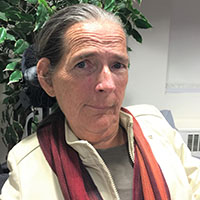
In mid-May, a respected physician and scholar stepped down as chair of a working group of the Expert Panel on Medical Assistance in Dying. The working group will study the issue of advance directives for medically assisted death. Named to chair it only two weeks earlier by the Council of Canadian Academies, Harvey Schipper had been judged harshly in some circles for having authored a commentary in 2014 in which he had, as one journalist put it, “compared arguments used to justify assisted dying with those advanced by Nazi Germany to justify the Holocaust.”
Schipper was repeatedly characterized as a “strident opponent” of assisted dying for reasons that had nothing to do with the tone or substance of his argument in the commentary. What seemed to cause offence and give rise to the damning label of “strident” opposition was his reference to Nazi-era euthanasia.
None of Schipper’s critics disputed the facts upon which his reference was based, nor should they. As historians have chronicled, the Nazi euthanasia program originated when a father in Leipzig petitioned to end the life of his disabled daughter, and Hitler dispatched his personal physician, Karl Brandt, to authorize her death as an “act of mercy.” According to the historian Hugh Gallagher, in his 1990 book, By Trust Betrayed: Patients, Physicians, and the License to Kill in the Third Reich, “As the story of the little Leipzig girl became known in medical circles, other families sent similar appeals to the Führer.” It fell to Brandt to make determinations on each of these requests and ultimately to authorize the killing of at least 70,000 people with disabilities, pursuant to what the United States Holocaust Memorial Museum describes as “a medically administered program of ‘mercy death.’”
Schipper’s recusal as working group chair will no doubt be applauded by advocates who seek to broaden the availability of assisted death in Canada. Others, like myself, who know Schipper to be a man of considerable wisdom and integrity, are saddened that the 43-member panel — which includes expert advocates for both sides of this debate — failed to seize the opportunity to rise above the clamour and collectively reject any suggestion that politics, rather than evidence, would govern their work. Had they spoken out together, and forcefully, in defence of their colleague, I cannot help but wonder if the outcome might have been different.
This is not the first time that a measured and accurate reference to the historical facts of the Nazi euthanasia program has been condemned as strident, distasteful or offensive. It should be the last.
Nothing about medically assisted death is ahistorical. As we review current law and practice and consider potential expansion to the Criminal Code exemptions that now permit Canadian doctors and nurse practitioners to end the lives of certain patients, surely we have the maturity to invite history into the conversation.
Doctors, at times, have killed. This is fact. Often, when they have killed or harmed, they have acted not alone but as agents of state authority. With all of their immense skill and influence, doctors have played indispensable roles in residential schools and asylums in Canada, wartime “comfort stations” in Southeast Asia, enhanced interrogation facilities at Guantánamo Bay and extermination centres in Nazi Germany.
People with disabilities have suffered violence and harm at the hands of doctors, parents and caregivers. Sometimes, as with Satoshi Uematsu — who killed 19 disabled people in Japan in 2016 in order to “save” them — the world has instantly recoiled in horror. Sometimes, as with Robert Latimer, a Saskatchewan farmer who killed his disabled daughter in 1993, a court of law may ultimately uphold a conviction, but not before public opinion solidifies in support of the perpetrator.
Sometimes, as with Karl Brandt, an entire nation colludes.
The Nazi Aktion T4 euthanasia program is part of my history as a disabled person. Importantly, it is also part of Schipper’s history as a physician. Those who would forbid us to speak of this history or who would police our speech as strident and unwelcome can only fuel doubt about whether its lessons have been learned.
Margaret MacMillan, the distinguished Canadian historian, has said that without knowing the past, we deprive ourselves of an important source of understanding. She asserts that one key to tackling complex problems is to ask the right questions, and that history, through its cautionary tales and analogues, is a rich vein of “right questions.” In the context of medically assisted death, surely some of those right questions will align with those that swirled in the immediate aftermath of the Holocaust, as the Nuremberg Code was forged.
If our federal government is to benefit from the comprehensive reviews that it assigned to the Council of Canadian Academies, and if the expert panel’s working groups are to gather the evidence Canadians require to guide policy decisions about providing medically assisted death to mature minors, to people with mental illness and to people no longer capable of expressing consent, then the history of euthanasia and questions arising from the darkest corners of that history must not be out of bounds. As MacMillan has said, “We don’t always know best, and the past can remind us of that.”
Photo: A woman passes the monument for the victims of euthanasia in Berlin. (AP Photo/Markus Schreiber)
Do you have something to say about the article you just read? Be part of the Policy Options discussion, and send in your own submission. Here is a link on how to do it. | Souhaitez-vous réagir à cet article ? Joignez-vous aux débats d’Options politiques et soumettez-nous votre texte en suivant ces directives.








